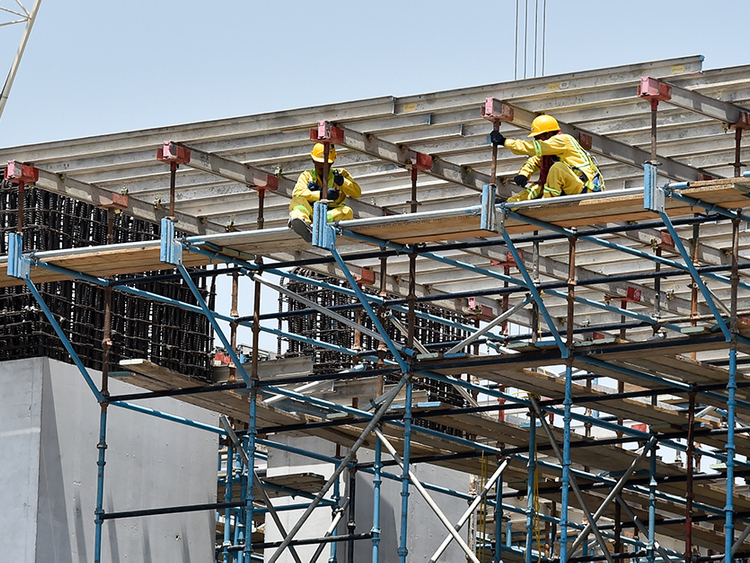Dubai: The Emirates NBD Dubai Economy Tracker Index (DETI) was unchanged at 56.3 in August, signalling continuing solid expansion in the non-oil private sector last month.
The index data showed non-oil private sector was sustained at a robust pace during August, supported by further gains in output, new orders and employment.
The output and new orders indices remained above 60, reflecting a sharp rise in business activity and new work.
Employment was only marginally higher (50.5) on average however, with more than 97 per cent of firms surveyed keeping employment unchanged last month.
August data pointed to sharp growth across the three key sectors monitored by the survey. Wholesale and retail was the best performing category (index at 56.3), followed by construction (55.8) and travel and tourism (55.1).
“The Dubai Economy Tracker survey shows continued expansion of the economy last month, at a similar rate to June and July. Output and new orders have increased sharply, although this has not translated into significant jobs growth,” said Khatija Haque, head of Mena research at Emirates NBD.
The wholesale and retail trade sector index eased further to 56.3 in August from a 2017 high of 58.3 recorded in February. This was due to slower growth in output and new work in the trade sector last month.
Employment growth was also slower in August, with this index declining to 51.5 from 52.0 in July.
Competition in the sector remains intense and firms continued to reduce selling prices on average in order to stimulate demand, according to the survey. Output prices have now declined every month since October 2015, despite rising input costs.
The headline construction sector index rose to 55.8 in August from 54.8 in July, as both output and new work increased at a faster rate. However, employment was broadly unchanged from July.
Panellists cited “more projects” as the key reason for higher output last month.
“This supports our view that the construction sector should contribute positively to Dubai’s overall GDP growth this year, and over the next couple of years as the emirate gears up to host Expo 2020,” said Haque.
Input cost inflation in the construction sector accelerated at the sharpest rate in more than two years in August, but despite this, average selling prices were marginally lower than July as firms competed for work.
The travel and tourism index slipped to 55.1 in August from 56.3 in July, but still points to a solid expansion in the sector last month, underpinned by strong new orders and output growth. Employment was broadly unchanged last month however.
Overall improvement in the health of Dubai’s private sector reflected another sharp increase in business activity in August despite slowing slightly from the preceding month. The rise in output was attributed by respondents to improved demand.
Input costs rose at a faster rate in August on the back of higher raw material purchase prices. Firms were able to increase selling prices slightly in August, with the output price index (50.7) posting a reading above the neutral 50 level for the first time in three months. Output charges rose only the second time in 13 months during August. The rate of inflation was marginal overall.
Firms were more optimistic in August, with the business expectations index rising to 68.5 from 67.7 in July. Survey panellists cited strong demand and new order growth as well as promotional activities as reasons for their optimism about the coming year.













